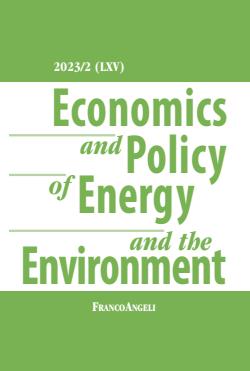Issue 2/2025
Articles
- Laura Visintainer Lerman, Daisy Valle Enrique, Wolfgang Gerstlberger, Navigating the challenges of renewable energy transition in emerging economies: Insights from Brazil
- Olena Shevchenko, Iuliia Tsyrfa, Natalia Serbina, Andrii Bozhkov, Nataliia Bordun-Komar, National strategies and international identity of EU, USA and China in the context of the fight against climate change
- Maria Emilia Garbelli, Renewable Energy Communities development among small and medium industries and the mediating role of trust. Pre-regulatory study from Lombardy
- Piyalee Bhattacharya, Asheesh Pandey, Bridging quality and sustainability: A bibliometric and systematic exploration of ESG scores in quality anomalies
- Hanna Anisimova, Viktoriia Haltsova, Oksana Volodina, Igor Samoshchenko, Alesia Gornostay, Criminal and environmental-legal aspects of criminal offenses against the international legal order, peace and security of mankind
- Monica Bonacina, Mert Demir, Antonio Sileo, Angela Zanoni, From ambition to reality: Exploring diffusion patterns of battery electric cars in Italy
- Yasser F. Nassar, Hala J. El-Khozondar, Mansour A. Salem, Abubaker Alatrash, Wael A. Salah, Mohammed J. Bashir, Mohamed H. Elnaggar, Technical and environmental cost-benefit analysis of strategies towards a green economy in the electricity sector in Libya
- A cura della Redazione, List of EPEE reviewers for the 2023-2024 and 2025 years
